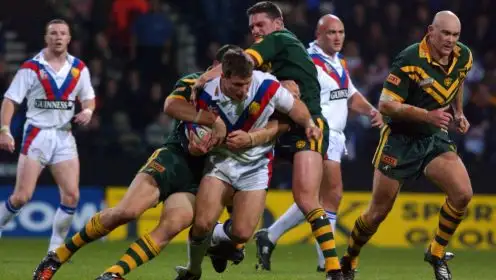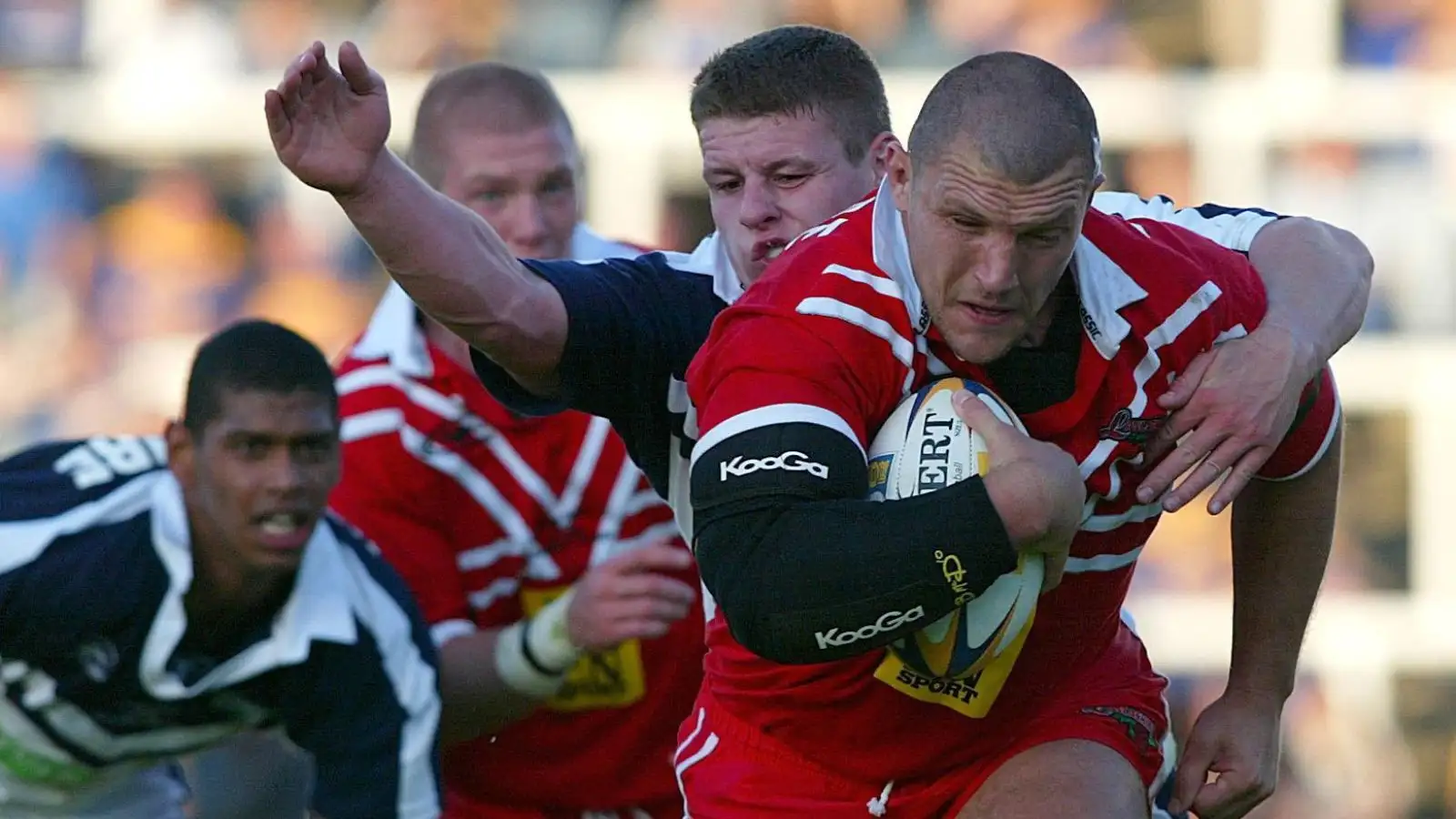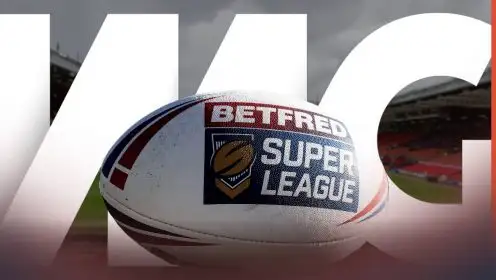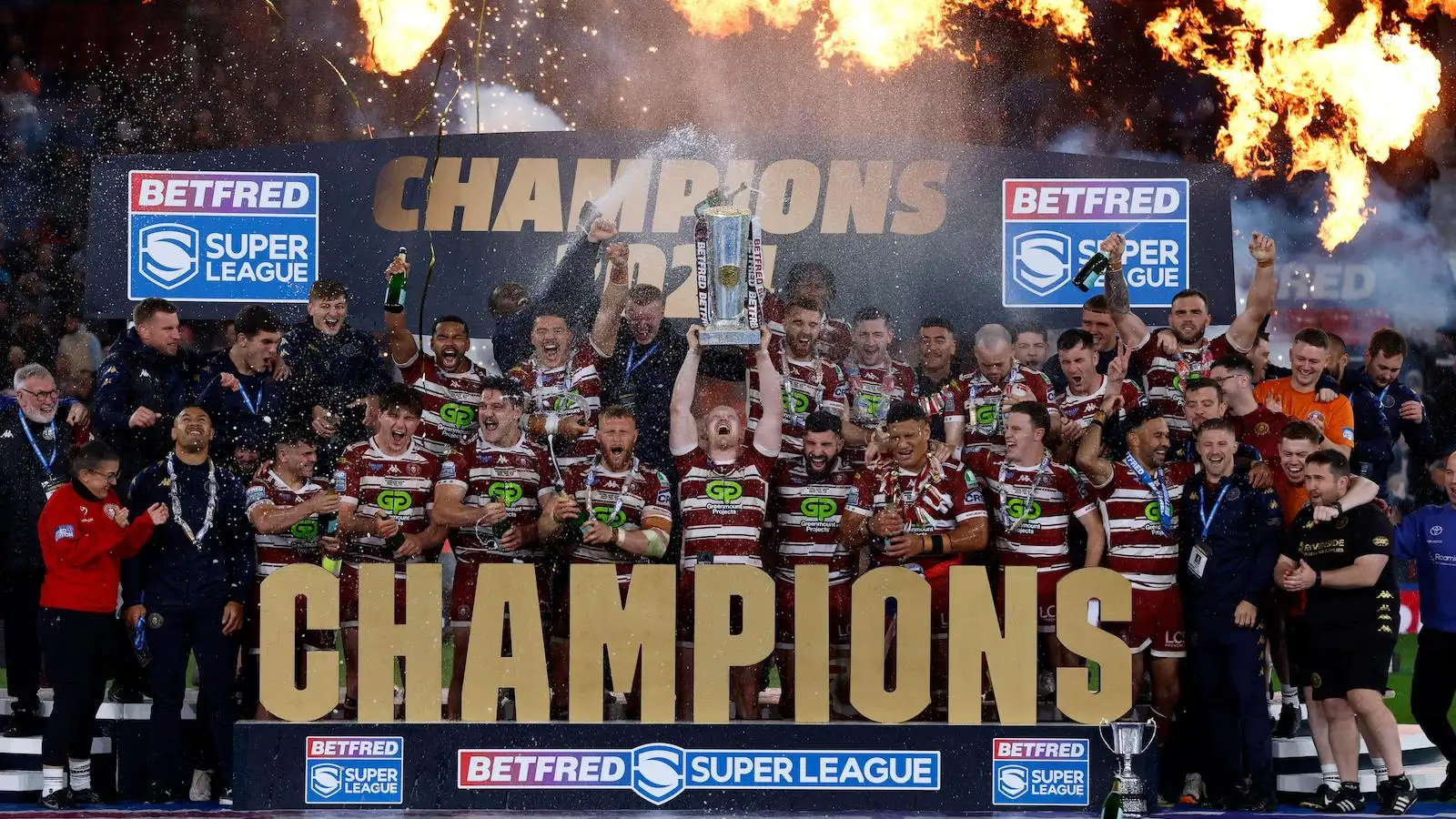Eddie Hearn lays in to rugby league: bitter or does he have a point?
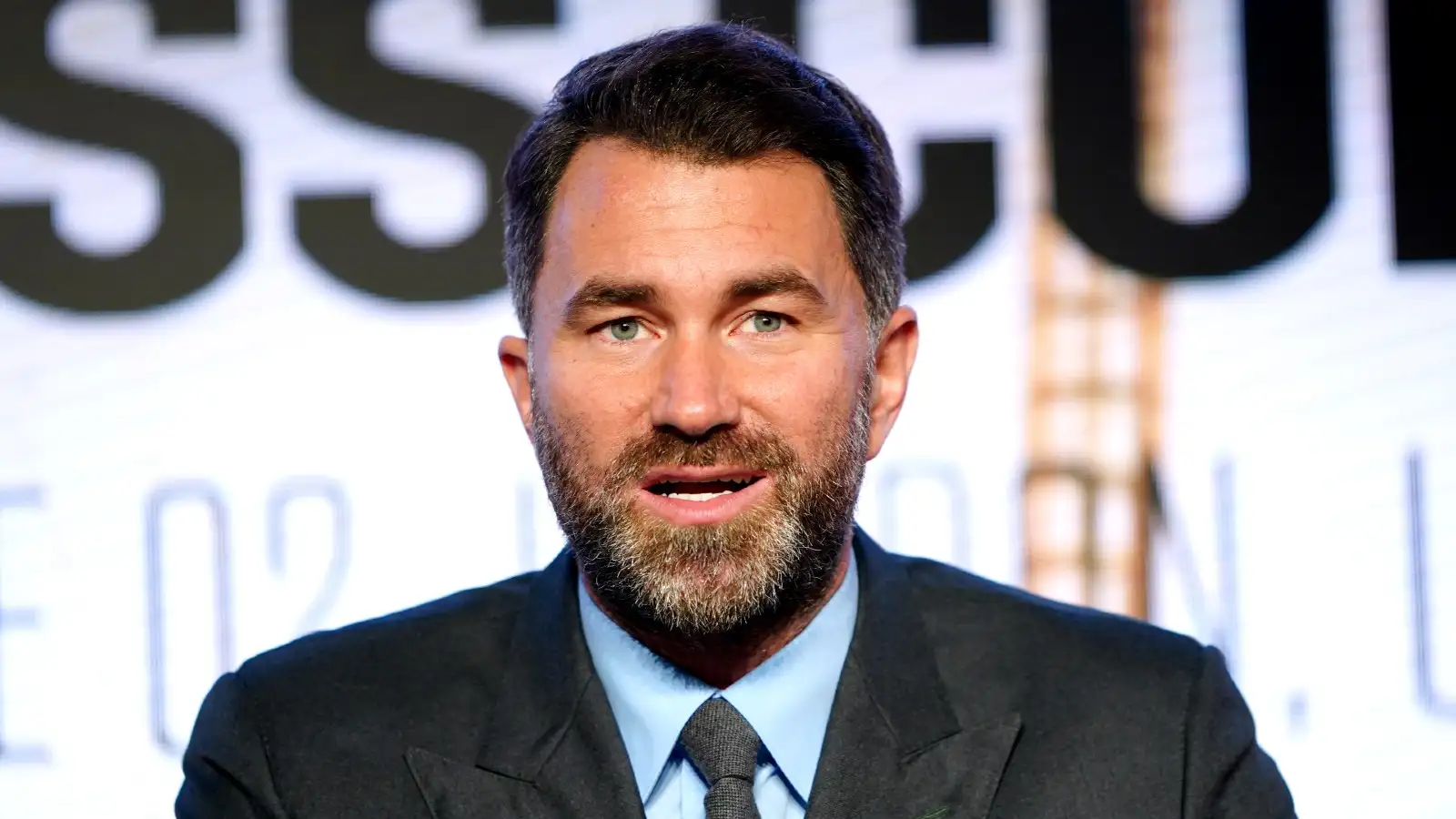
Photo: Zac Goodwin/PA Wire/PA Images
IMG have been tasked with steering rugby league forward, but at one time that responsibility might have fallen to Eddie Hearn.
Back in 2018, he held discussions with the RFL about ways the Hearns and Matchroom could help the sport in a similar way to how they have revolutionised darts, boxing and snooker particularly.
Hearn was a guest at the Challenge Cup final that year, which he proclaimed on Twitter was his first rugby league experience. He held meetings with then-RFL chief executive Ralph Rimmer and Super League boss Robert Elstone.
But talks broke down as rugby league chiefs wanted him to look at a few select properties, whereas the Hearns wanted to control the entire sport.
He told The Good, The Bad and The Rugby podcast: “Rugby league is absolutely bang in trouble.
“They wanted us to come in and look at the Challenge Cup and a few different elements of the game and I said ‘no, we need to control the game’.
“It has to be built and the problem is that both (rugby) codes aren’t delivering numbers. Away from the big international stuff, the reality is that viewing figures are horrendous and the reason is because you don’t have any stars.
“I’m a promoter of individuals really but to promote a sport essentially, you have to highlight those people and make them stars.”
“Beyond f*cked”
It’s not the first time that Hearn has hit out at rugby league since his previous talks with it broke down.
Back in 2020, he told the Financial Times that rugby league is “beyond f*cked”.
He said: “We can (come in and do what we’ve done for boxing and darts), but we have to own it all.Either we rip up the script and we do it our way, or we don’t bother. Cos it’s f*cked, rugby league. Beyond f*cked.”
While what Hearn says makes for a good soundbite and a good headline, the route to him and Matchroom helping the sport had a lot more obstacles than faced in individual sports.
Every single rugby league club is a business in its own right with its own interests, and given the finances involved, they are understandably going to be reluctant to put that solely in the control of somebody else.
That contrasts to the approach of the Hearns in snooker or darts, where they can organise tournaments and events on a whim because the players ultimately have no choice but to play in them if they want to earn prize money and ranking points.
“It’s easy to understand and fast-paced”
Replicating that sort of authority or autonomy in a team-based sport is a completely different ball game.
Hearn previously told The Guardian: “There’s the foundations of a great sport here. It’s very easy to understand and it’s fast-paced, which is great news in terms of attracting casual supporters. But there’s a distinct lack of those at the minute.
“There are things we’re going to bring up that certain people won’t like. But if the game wants to grow, those conversations need to be had.
“I don’t see the idea of everyone on the same level-playing field as great in some respects. The cap makes it a bit boring in a way, the big clubs need to dominate, like when rugby league was powerful in the 1980s with Wigan and St Helens.
“If the richer owners are pumping their money in to get the best players and create the biggest stars, surely that’s a good thing for the sport as a whole.”
The responsibility now falls on IMG to find the formula to success for a sport that has existed for 127 years, but constantly has questions raised about its future.
READ MORE: Eddie Hearn: Salary cap holding rugby league back
Putting players at the forefront
A point both IMG and Hearn have made is about creating stars out of the sport’s players.
The trouble with that is the world has moved on a lot in the past two decades. Sport stars are rarely household names anymore, not like back in the 1990s when the presence of live sport on terrestrial television meant the England rugby union and cricket teams, for example, were much better known.
I doubt that many names in team sports these days are household names as they once were. It’s a fallacy to believe that there is a way anymore of ensuring rugby league players become household names.
What the sport can do though, is make the most of what they have. Instead of utilising personalities from other sports to promote Super League, use players of their own. Create opportunities for those players, like appearances on TV as we saw from Tommy Makinson on Soccer AM.
The sport itself is guilty of being stuck in the past too, constantly rolling out old names like Martin Offiah and Jason Robinson when the opportunity is there in a desperate attempt to stay relevant. Even Offiah himself concedes he can’t believe that the sport still rings him up even now, when the reality is there should have been plenty more rugby league personalities on the conveyor belt.
Hearn was never going to be able to get his claws in to rugby league in the same way as darts and boxing and he is right that there’s work that needs to be done.
The trouble is that sweeping statements don’t detail the short-term need for survival facing many rugby league clubs, which will always be the priority over long-term fantasy – the long-term doesn’t happen if the short-term can’t be navigated through, and that will be the constant battle facing the sport.
READ NEXT: Will IMG succeed where others have failed since the 1970s?
